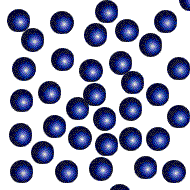The State of Matter 
________________________________________________________________________________
Have you ever wonder about what's inside a large table? or even the particles of air moves? In this topic readers will understand what really matters in matter 😊. And its different states.Become aware that everything on earth is matter. Before we have only three state of matter this are solid , liquid and gas and because
of fast innovation of technology , ugraded devices and new discoveries found . Plasma evolve
and exist.Now we have four state of matter .
What is Matter?
Matter takes up space and has mass, yet matter can exist in four states, The state
of matter depends on its temperature . When heated , matter expands; when cooled, it contract.
What are the four state of matter?

- SOLID
Every solid has a definite shape and volume. Tiny particles in solids are closely
packed so that they cannot move around. That is why a solid holds it shape. The atom s or molecule s of matter in the solid state are generally compressed as tightly as the repulsive forces among them will allow.
- LIQUID
can move around but you cannot squeeze them into smaller volume. having the properties of a liquid : being neither solid nor gaseous. The atom s or molecule s of matter in the liquid state are compressed as tightly as those of matter in the solid state, but the atoms or molecules in a liquid can move freely among each other.
particles of liquid
- Gas
Gases do not have definite shapes or volume,They can expand to fill up space.You can squeeze into a smaller volume. When you increase the temperature the volume of the gas also increase.The atom s or molecule s of matter in the gaseous state move freely among each other, and are, in most instances, packed more loosely than the molecules of the same substance in the solid or liquid state.
Plasma is found in stars and nebulae. It occurs only when the temperature is extremely
high. It is a gas - like mixture of position. Plasma is a form of matter in which many of the electrons wander around freely among the nuclei of the atoms.In a plasma, a significant number of electrons have such high energy levels that no nucleus can hold them.
An atom that has lost some of its electrons, thereby attaining an electric charge, is an ion. When a gas is subjected to heat or an electric field, some of its atoms become ions, and the gas is said to be ionized. An ionized gas, unlike a gas in its normal condition, can conduct electrical current to a limited extent. If the heat or electric field becomes extreme, many of the atoms become ions. The resulting super-ionized gas is a plasma, which can conduct a large and sustained electric current.

3. 8.
8. :max_bytes(150000):strip_icc()/123535121-58b5b3173df78cdcd8ac81de.jpg)
4. 9.
9. 
5. 10.
10. 

References:
https://www.google.com.ph/search?biw=1366&bih=641&tbm=isch&sa=1&ei=VPduW9u3JJOGoASP64yYBQ&q=particles+of+plasma+positively+and+negatively++gif+animation&oq=particles+of+plasma+positively+and+negatively++gif+animation&gs_l=img.3...32146.45270.0.45489.31.27.1.0.0.0.709.3980.0j3j1j1j2j2j1.10.0....0...1c.1.64.img..21.0.0....0.RfWIe_if_5s#imgrc=zkgFDGT24xBNoM:
particles of gas
- Plasma
Plasma is found in stars and nebulae. It occurs only when the temperature is extremely
high. It is a gas - like mixture of position. Plasma is a form of matter in which many of the electrons wander around freely among the nuclei of the atoms.In a plasma, a significant number of electrons have such high energy levels that no nucleus can hold them.
An atom that has lost some of its electrons, thereby attaining an electric charge, is an ion. When a gas is subjected to heat or an electric field, some of its atoms become ions, and the gas is said to be ionized. An ionized gas, unlike a gas in its normal condition, can conduct electrical current to a limited extent. If the heat or electric field becomes extreme, many of the atoms become ions. The resulting super-ionized gas is a plasma, which can conduct a large and sustained electric current.

particles of gas
Lets have an activity. Ill show you some pictures. Identify whether the picture is Solid, Liquid, Gas or Plasma.
-
 6..
6.. 
2.  7.
7. 
 7.
7. 
3.
 8.
8. :max_bytes(150000):strip_icc()/123535121-58b5b3173df78cdcd8ac81de.jpg)
4.
 9.
9. 
5.


References:
https://www.google.com.ph/search?biw=1366&bih=641&tbm=isch&sa=1&ei=VPduW9u3JJOGoASP64yYBQ&q=particles+of+plasma+positively+and+negatively++gif+animation&oq=particles+of+plasma+positively+and+negatively++gif+animation&gs_l=img.3...32146.45270.0.45489.31.27.1.0.0.0.709.3980.0j3j1j1j2j2j1.10.0....0...1c.1.64.img..21.0.0....0.RfWIe_if_5s#imgrc=zkgFDGT24xBNoM:



No comments:
Post a Comment